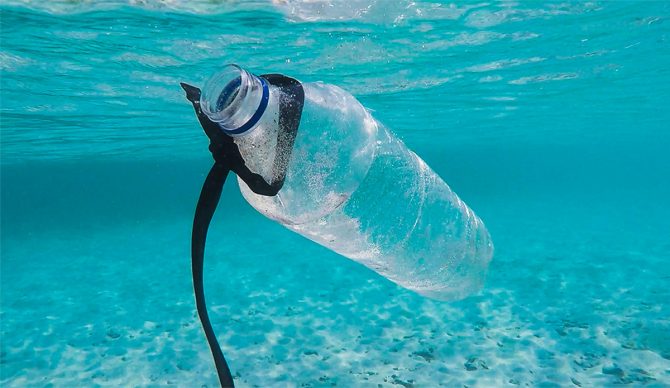
We thought we had a solution to plastic. Turns out we might not. Photo: Brian Yurasits
If we all recycled we would be able to stop the plastic pollution crisis, right? According to a new report, recycling has never been a viable solution to manage plastic waste, nor will it ever be. And, apparently, efforts to make us believe the contrary have been part of a careful, decades-long campaign to sway public opinion about the pitfalls of plastic recycling and to protect the plastic industry.
The report, titled “The Fraud of Plastic Recycling,” was released this month by the Center for Climate Integrity (CCI). The authors give a breakdown of why recycling does not solve the plastic problem, shows evidence of how the plastic and oil industries knew this, and explains how the plastic stakeholders deliberately acted to deceive the public.
The report places the blame particularly on “Big Oil and the plastics industry – which includes petrochemical companies, their trade associations, and the front groups that represent their interests.” More specifically, it highlights companies like DuPont and ExxonMobil, which is currently the world’s top producer of single-use plastic polymers. According to CCI’s news release, it hopes this report and its supporting evidence can provide the foundation to hold petrochemical companies legally accountable for their actions.
The report goes through a timeline of the plastic industry’s search for a solution to dispose of their product. From the 1950s to the ‘70s, they tried to sell the public on disposal – incineration or landfilling the plastic waste. When those proposals faced backlash, the idea of recycling was proposed in the 1980s. However, research conducted by plastic producers themselves indicated that recycling would not be a realistic solution to the problem. One report done by the Vinyl Institute concluded, “recycling cannot be considered a permanent solid waste solution, as it merely prolongs the time until an item is disposed of.”
The problem the plastic industry faced (and still faces) is that the majority of plastics simply cannot be recycled. Between 1950 and 2015, over 90 percent of plastics were landfilled, incinerated, or leaked into the environment. The report lays out five complications for recycling plastic: certain plastics have no end market (no one to buy them to make new products); variation among plastics limits recyclability because it becomes impractical to separate them (many single-use plastics are made of several types of plastic polymers); plastic quality degrades each time it is recycled and usually is recycled only once or, in rare cases, twice; the toxicity of plastic and its chemical additives limit recyclability; and, finally, recycling is more expensive and creates an inferior product than simply creating virgin plastic.
Well-aware of these facts, in the 1980s and ‘90s the plastic industry forged ahead anyway with recycling as the solution to the plastic waste problem. They started campaigns to sell the idea that one day recycling would be the solution to plastic waste. While the report does acknowledge that the plastic industry’s investments in recycling did yield some marginal success, such as the recycling rate of PET bottles increasing from five to 30 percent in the late 1980s, the public opinion campaigns were the industry’s true success. Data polls done by the American Plastics Council showed that “favorability of plastics increased 12 percent between August 1992 and April 1997” and in 1997, groups polled consistently believed that plastic recycling could be done more economically.
“Big Oil and the plastic industry’s decades-long campaign to deceive the public about plastic recycling has likely violated laws designed to protect consumers and the public from corporate misconduct and pollution,” said Alyssa Johl, CCI’s vice president of legal and general counsel. “Attorneys general and other officials should carefully consider the evidence that these companies defrauded the public and take appropriate action to hold them accountable.”
In addition to holding the plastic industry responsible, CCI is hoping that the legal pressure can incentivize them to change the business model.
The report concludes, “Fossil fuel and other petrochemical companies should now be held accountable for their deliberate campaign of deception and the resulting harms, much like tobacco and opioid companies that employed a similar playbook. Based on the growing body of evidence, municipalities and states are likely to pursue litigation, which could put an end to the industry’s deception, make the companies pay for the devastating harms they have caused to communities, and open the door to real solutions that are currently out of reach.”

